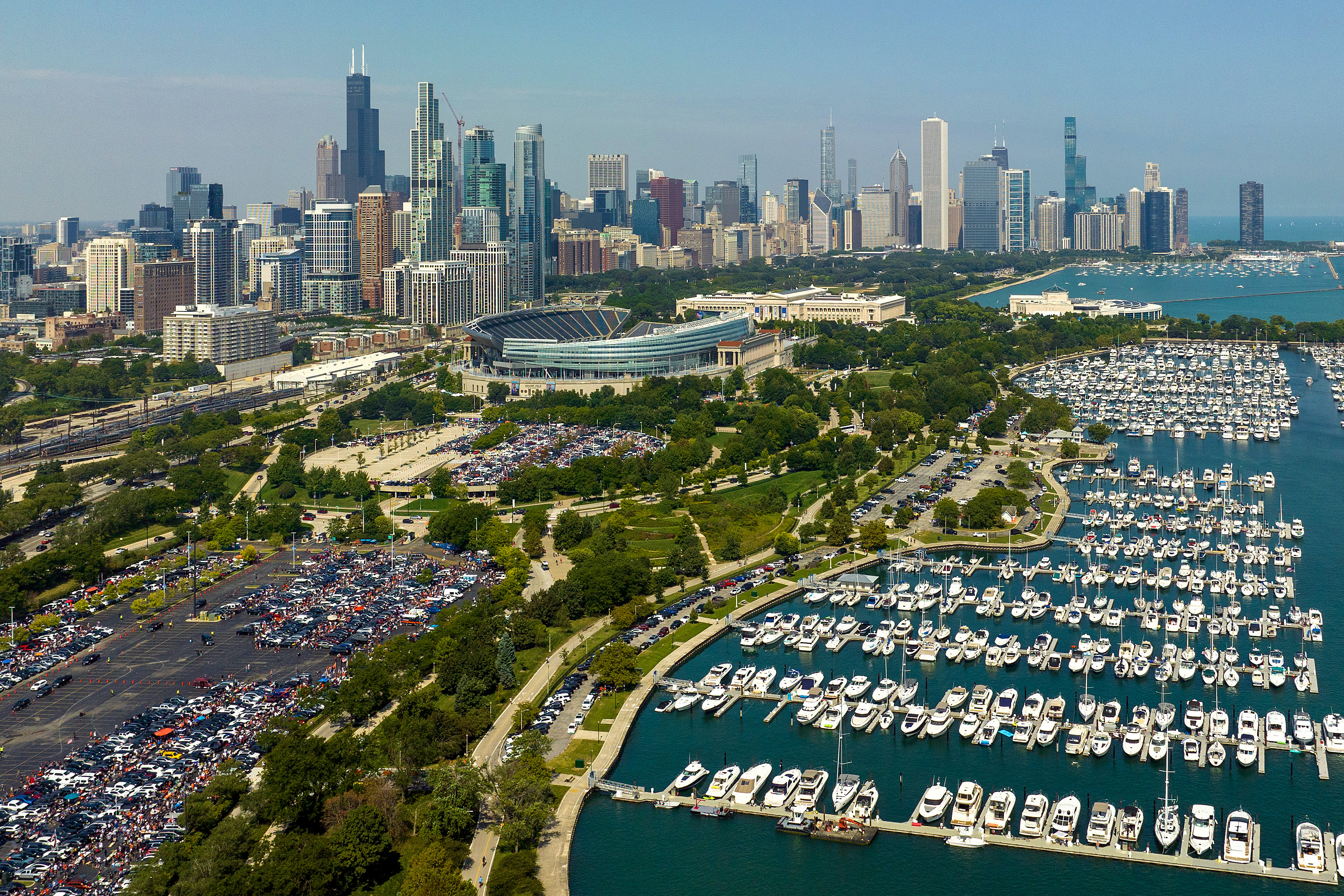The Supreme Court has ended constitutional protections for abortion that had been in place nearly 50 years in a decision by its conservative majority to overturn Roe v. Wade. The ruling will have major implications across the U.S., but what will it mean for Illinois?
The ruling came more than a month after the stunning leak of a draft opinion by Justice Samuel Alito indicating the court was prepared to take this momentous step.
Here's what we know so far.
What does the Supreme Court's decision mean?
Feeling out of the loop? We'll catch you up on the Chicago news you need to know. Sign up for the weekly Chicago Catch-Up newsletter here.
Alito, in the final opinion issued Friday, wrote that Roe and Planned Parenthood v. Casey, the 1992 decision that reaffirmed the right to abortion, were wrong the day they were decided and must be overturned.
Authority to regulate abortion rests with the political branches, not the courts, Alito wrote.
Joining Alito were Justices Clarence Thomas, Neil Gorsuch, Brett Kavanaugh and Amy Coney Barrett. The latter three justices are former President Donald Trump appointees. Thomas first voted to overrule Roe 30 years ago.
Local
Chief Justice John Roberts would have stopped short of ending the abortion right, noting that he would have upheld the Mississippi law at the heart of the case, a ban on abortion after 15 weeks, and said no more.
Justices Stephen Breyer, Sonia Sotomayor and Elena Kagan — the diminished liberal wing of the court — were in dissent.
The ruling is expected to disproportionately affect minority women who already face limited access to health care, according to statistics analyzed by The Associated Press.
Thirteen states, mainly in the South and Midwest, already have laws on the books that ban abortion in the event Roe is overturned. Another half-dozen states have near-total bans or prohibitions after 6 weeks of pregnancy, before many women know they are pregnant.
In roughly a half-dozen other states, the fight will be over dormant abortion bans that were enacted before Roe was decided in 1973 or new proposals to sharply limit when abortions can be performed, according to the Guttmacher Institute, a research group that supports abortion rights.
What comes next?
The Biden administration and other defenders of abortion rights have warned that a decision overturning Roe also would threaten other high court decisions in favor of gay rights and even potentially, contraception.
But Alito wrote in his draft opinion that his analysis addresses abortion only, not other rights that also stem from a right to privacy that the high court has found implicit, though not directly stated, in the Constitution. Abortion is different, Alito wrote, because of the unique moral question it poses.
What does such a ruling mean for Illinois?
Illinois has "very strong pro-reproductive rights laws," Carolyn Shapiro, professor of law and co-director of Chicago-Kent College of Law’s Institute on the Supreme Court of the United States, told NBC 5 last fall when the Supreme Court allowed a new Texas law that bans most abortions.
Illinois Gov. J.B. Pritzker signed into law in 2019 legislation expanding abortion rights across the state.
The Reproductive Health Act rescinded prohibitions on some late-term abortions and 45-year-old criminal restraints such as criminal penalties for doctors performing abortions.
The restrictions adopted after the 1973 U.S. Supreme Court decision in Roe v. Wade that legalized abortion have never been enforced in Illinois because of court injunctions.
Sponsors of the Reproductive Health Act warned at the time that its protections would be necessary should the landmark Roe v. Wade decision be overturned.
Pritzker also repealed the Parental Notification Act in 2021, allowing pregnant minors to choose whether or not a legal guardian or family member is involved in their decision. Supports of the move said the repeal "protected the most vulnerable youth - such as victims of rape, incest, and domestic abuse – from being compelled to notify their abusers."
Following the latest news of the SCOTUS decision, Pritzker tweeted "we will fight back."
He also called for a special session for reproductive health rights.
"In Illinois, we trust women. Despite the action of the Supreme Court today overturning Roe v. Wade, the right to safe, accessible reproductive health care is in full force in Illinois – and will remain so," Pritzker said in a statement. "In Illinois, we’ve planned for this terrible day, an enormous step backward and a shattering loss of rights."
He called for the General Assembly to hold a special session in the coming weeks saying, "together, we are committed to taking swift action to further enshrine our commitment to reproductive health care rights and protections."
But Shapiro noted that if Roe v. Wade is overturned and Congress debates the possibility of a nationwide abortion restriction, then the impacts could be felt in Illinois.
"If there are national efforts to change the law in Congress to impose different types of abortion bans - as Congress did with what they call the partial birth abortion ban, which the Supreme Court upheld - they could then... that would obviously have enormous effects here in Illinois and would be quite frightening," Shapiro said.
In recent years, Illinois has seen an influx of patients traveling to the state to seek reproductive care, Pritzker said.
According to data from the Illinois Department of Public Health, 7,534 nonresidents received abortions in Illinois in 2019, compared with 2,970 in 2014 and 5,528 in 2017.
"This is not an assurance that Illinois will always be a pro-choice state," Pritzker said previously. "If the wrong people are elected to office, people who are against women's rights get elected to office, if the legislature turns Republican or the governorship turns Republican, we will end up being an anti choice state."
What will it mean for other states?
The ruling immediately splits the country into states with abortion access and those that outlaw it.
Thirteen states, mainly in the South and Midwest, already have laws on the books that ban abortion in the event Roe is overturned. Another half-dozen states have near-total bans or prohibitions after 6 weeks of pregnancy, before many women know they are pregnant.
In roughly a half-dozen other states, the fight will be over dormant abortion bans that were enacted before Roe was decided in 1973 or new proposals to sharply limit when abortions can be performed, according to the Guttmacher Institute, a research group that supports abortion rights.
In Wisconsin, which has an 1849 abortion ban on the books, Planned Parenthood immediately halted all scheduled abortions at its clinics in Madison and Milwaukee following the high court's ruling.



